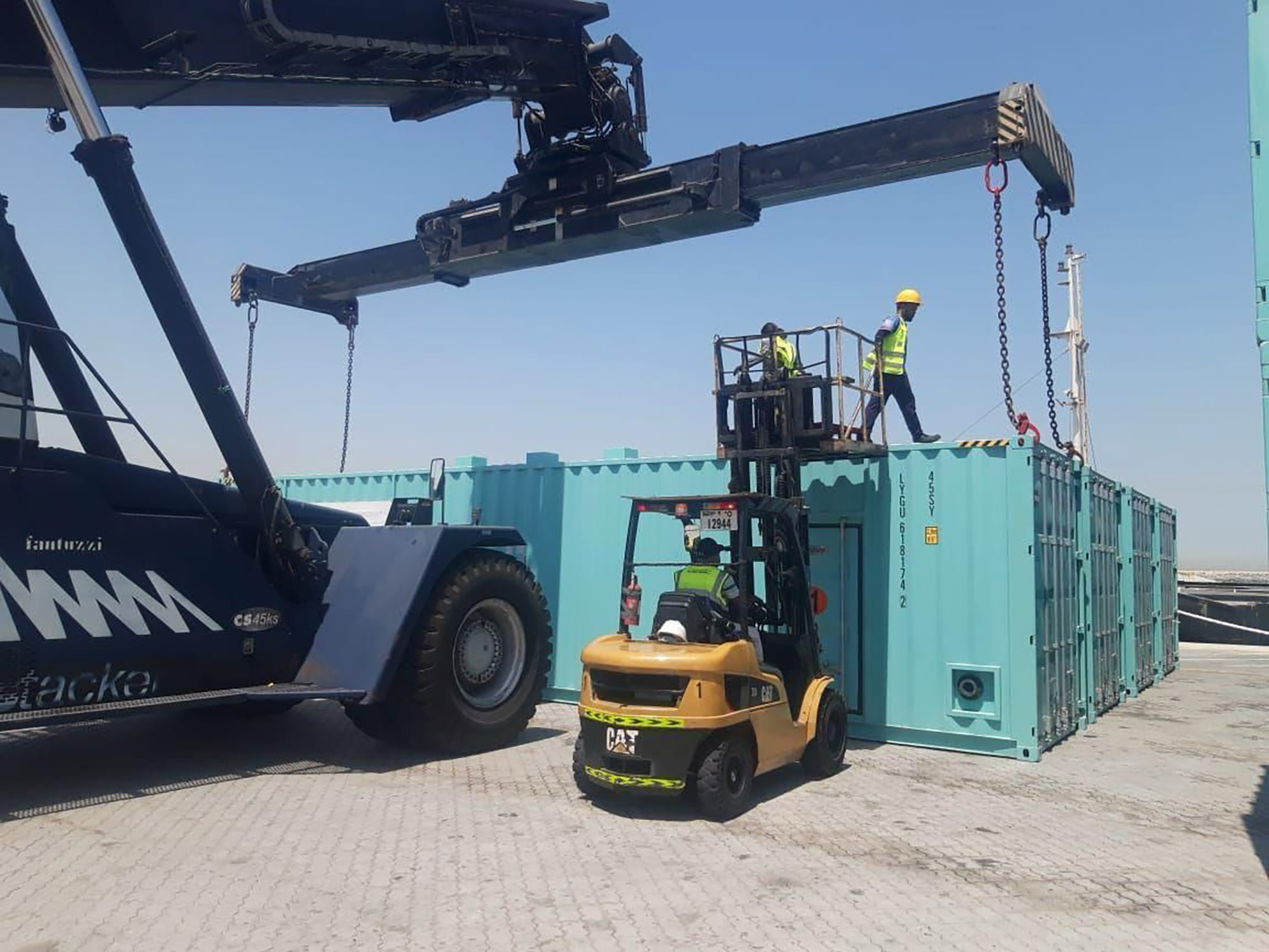Despite critically low water levels at the island’s largest reservoir, Kouris dam, water cuts will be avoided this year thanks to the installation of 12 new desalination units, deputy director of the water development department George Kazantzis said on Monday.
“Starting today, we will continue the sequential connection of all 12 units, except for the 13th, which uses different technology and has not yet been addressed by technicians,” Kazantzis told StockWatch.
The new units are being installed in Limassol and Paphos, but their output will also supply the districts of Nicosia, Larnaca and Famagusta.
Three of the new units began operating early last week.
“The water produced by these desalination units will initially be channelled to the southern pipeline to supply the districts of Larnaca, Famagusta and Nicosia,” he said.
In Limassol, two additional desalination units are planned: one at the port and another in the Garyllis area. Each is expected to produce 10,000 cubic metres of water per day and could be operational by the end of the year, Kazantzis said.
The contract for the Garyllis unit is expected to be signed soon, pending the rejection of a second bidder’s appeal. Regarding the desalination plant at the port, he said that a contractor had already been found and that, provided that no appeals arise, the signing would proceed soon.
“If everything goes smoothly, the Limassol port unit will also be ready before the end of the year,” he added.
According to Kazantzis, a 14th desalination unit, shipped from the United Arab Emirates, will be installed in mid-August. Together with the other units in Moni, a total of 15,000 cubic metres of water could be produced per day, he said.
“At least for this year, there is no question of interrupting the water supply”, Kazantzis emphasised, though he urged the public to use water wisely, warning that more difficult years lie ahead due to prolonged drought.
In the Paphos district, where water shortages have been more acute, the issue is expected to ease by the end of August with the operation of two desalination plants. A new plant in Kissonerga, producing 2,000 cubic metres of water per day, is set to begin operations on Tuesday.
Meanwhile, the reconstructed Timi plant, destroyed by fire in December 2024, is expected to come online by mid-August.
“The water supply problem in Paphos will be solved when these specific desalination units are put into operation”, Kazantzis said.
Kazantzis cautioned that the success of the desalination programme depends on continued successful drilling. “So far, the drillings have been successful, but there is potential for complications in the future,” he noted.
The new desalination units were donated to Cyprus by the United Arab Emirates and will remain in use until the end of 2026 as part of efforts to address severe water scarcity on the island.
The three new units had faced several weeks of delays due to a hold-up in material deliveries. In the interim, additional boreholes were activated in the Kouris delta and Yermasoyia areas to bridge the supply gap.
Cyprus is grappling with long-term drought. By the end of January, total reservoir capacity had dropped to just one-quarter, worsened by the emptying of the Mavrokolympos reservoir earlier this year.
In early July, the government introduced fines for water waste, ranging from €85 for first-time offenders to potential criminal prosecution and jail time for repeat violations.






Click here to change your cookie preferences